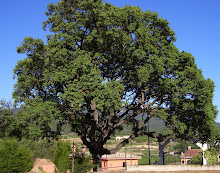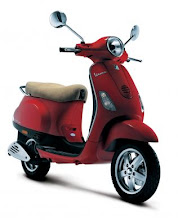| Agustí Centelles, Bombardeig de Lleida, 1937 [(c) mnac.cat] |
"Until March 1938, Lleida was the most important Catalan city of the Republican rearguard near the Aragon front. As a result, it was a place where troops passed through and it had a frontline hospital and a shelter for people retreating from the onslaught of Franco’s army. Its strategic location made it a primary target of the fascist air raids. On the 2nd November 1937, one of the cruellest attacks of the Civil War took place when nine Italian three-engine aeroplanes deployed their bombs on the city’s main thoroughfares, particularly damaging the secondary school and the Sant Lluís market. With the bombardment of the school, an institution associated with freedom of education was attacked and it became a symbol of innocent victims of the war. At least 250 people were killed in the attack, including around 50 girls and boys who were students at the school."
The school "incident" has got its own Wikipedia article here. According to some bloggers, the local historian Mercè Barallat believes that the school was targeted expressly due to its libertarian ideas.
A short Internet search leads one to a text by Josep Pla and Antonio Ruiz Mostany, published on the website of La Mañana newspaper in 2011, that gives a slightly different version at least as to the motivation behind the attack. The text, entitled "The truth about the bombardment of Lleida", cites the original orders to the flying squad found at the archives of the Italian airforce in Rome. Reading these it turns out that the bombardment of the town of Lleida (secondary target) was undertaken due to the cloudy weather above the principal target of the bombardment: the chemical industry of the town of Flix on the banks of the Ebro river. According to this article, Flix as a center of explosives' production was a legitimate military target. The tragedy was that the same (incendiary) bombs meant for an industrial site were then strewn over a town centre. As the planes stayed at a height of 4.200 to 3.600 metres so as not to become artillery targets themselves, the bombardment was a rather crude affair; apart from causing a massacre among the civilian population, a lot of bombs ended up inside the river Segre and on the farmland around Lleida. The authors remark that the report of the bombardment by the Italian aviation changed from one echelon to the next: whereas the lower ones talked openly about bombing bridges, factories and "military concentrations", the highest ones - reporting to their Spanish allies - only talk about bombing "a bridge in the vicinity of Lleida". As to the victims, Pla and Ruiz Mostany talk about 251 dead and 750 wounded.
The classic comprehensive studies on the Spanish Civil War have been written by A. Beevor, P. Preston and T. Hughes. Those concentrating on the war in Catalonia, e.g. by Josep Maria Solé i Sabaté, have not been translated into English (yet).
Endnote:
(1): Memorial Democràtic is a public institution funded by the Generalitat (regional government of Catalonia) that studies and divulges the history of Catalunya during the period of 1931 to 1980, i.e. from the second Spanish republic to the restoration of democracy after Franco's death.






